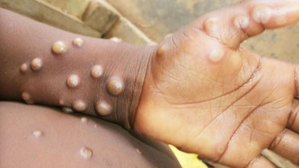Health
Mpox: Pakistan detects 2 more cases, tally rises to 3

New Delhi, Aug 16
Pakistan has detected two more cases of Mpox disease, taking the tally to three, according to reports on Friday.
The report comes as the World Health Organisation (WHO) and the Africa CDC declared the outbreak a global health emergency.
Pakistan reported the first suspected case of Mpox in a 34-year-old man who recently returned from Saudi Arabia.
As per the provincial health department, two more patients from the Khyber Pakhtunkhwa region have been confirmed to have mpox.
Since April 2023, Pakistan has reported 11 cases of Mpox and one death.
The three new patients have been quarantined and it is immediately not clear whether the patients are linked to the new and more deadly strain of Mpox -- clade 1b -- that is currently responsible for the outbreak in Africa, where the virus has spread to about 13 countries.
On Thursday, global health officials confirmed an infection with clade 1b in Sweden -- a first outside Africa. The WHO warned that this may spur more cases of the deadly variant in Europe.
During the previous wave of infection in 2022, Sweden reported around 300 Mpox Clade IIb cases.
Since the current outbreak began in January 2023, there have been 27,000 cases and more than 1,100 deaths, mainly among children, in the DRC. In 2024, the disease has killed 548 people so far in the African country. It has also spread to 4 new countries - Burundi, Kenya, Rwanda, and Uganda - - in the continent.
The deadly virus causes an infection that leads to pus-filled lesions, fever, and muscular aches, which can last from 2 to 4 weeks. It can be transmitted by contact with an infected person, animal, or contaminated materials.
According to the WHO, the current outbreak is driven by a novel strain of the virus known as clade Ib.
It is more virulent than clade II -- the strain responsible for the 2022 Mpox outbreak. Children are reportedly more “susceptible to this strain”, as it spreads primarily through household contacts. It is also estimated to cause more severe conditions and higher mortality.



































